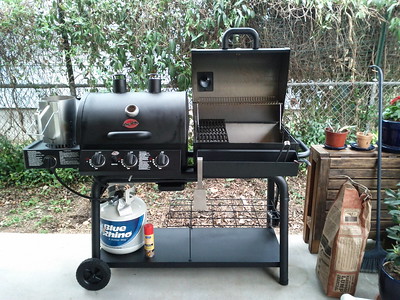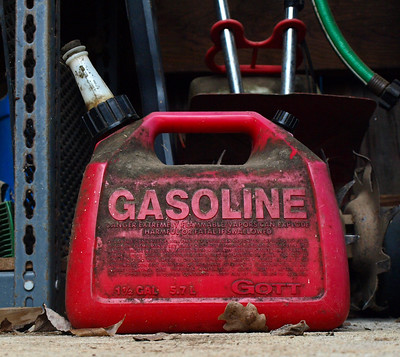
Lighters are portable devices used for creating a flame, and they have been around for a long time. The early lighters used a flint and steel mechanism to create a spark, which would ignite the fuel. The fuel used in these early lighters was typically a liquid, such as gasoline or kerosene. However, these fuels were not only flammable but also produced a lot of smoke and odor.
As technology progressed, so did the design and the fuel used in lighters. Today, lighters typically use butane, a hydrocarbon gas that is commonly used as a fuel for portable stoves and camping lanterns. Butane is a colorless, odorless gas that is denser than air and easily combustible. It is derived from natural gas or petroleum and is typically stored in pressurized containers.
But why do lighters use butane instead of propane? There are several reasons for this:
- Vapor pressure: Butane has a lower boiling point and a higher vapor pressure than propane. This makes it easier to ignite with a spark from a lighter. Butane evaporates quickly and easily, so it is perfect for use in small, handheld devices like lighters.
- Safety: Butane is less dense than propane, which means that it is less likely to pool and create a fire hazard. Butane also has a lower ignition temperature than propane, which makes it safer to use in small, handheld devices like lighters. Additionally, butane burns cleaner and produces less odor than propane, which makes it a more attractive option for use in enclosed spaces.
- Availability: Butane is more commonly available in small, disposable canisters that are used for lighters and camping stoves. Propane, on the other hand, is typically used in larger tanks for grills and other outdoor appliances. Butane can also be found in refillable canisters, which makes it a more convenient option for people who use lighters frequently.
- Cost: Butane is generally less expensive than propane, making it a more cost-effective option for lighters. This is because butane is easier to produce and transport than propane, which is typically used in larger quantities for outdoor appliances like grills and heaters.
Butane is a safer, more convenient, and cost-effective fuel option for lighters than propane. It is readily available in small, disposable canisters, burns cleaner and produces less odor, and is less likely to pool and create a fire hazard. These benefits make butane an ideal fuel for lighters and other portable devices that require a reliable source of ignition.
Read related article: Are Butane Lighters Allowed on Airplanes? (Do This Instead)
Here Are Some of the Other Factors
Physical Properties of Butane vs. Propane: Beyond the Basics
Boiling Points:
Both butane and propane are members of the alkane family. However, butane boils at a cooler -0.5°C, whereas propane’s boiling point is at a much colder -42°C. This means butane can be stored in liquid form at a higher temperature, making it more suitable for pocket lighters that operate at room temperature.
Density and Storage:
When it comes to storing these gases, butane’s higher density in its liquid form means you can pack more fuel in the same volume, ensuring your lighter lasts longer between refills.
Safety Considerations: Going Deeper
Flammability Ranges:
Safety is paramount when dealing with flammable materials. Butane’s flammability range is narrower than propane’s, meaning it requires more precise conditions to ignite. This inherent safety trait makes it a favorite for handheld devices.
Flash Points and Autoignition Temperatures:
Butane and propane differ in terms of their flash points and autoignition temperatures. With butane less prone to accidental ignition, it offers a safer profile for users.
Performance Factors
Consistency of Flame:
When you strike a lighter, you expect a consistent flame. Butane delivers on this expectation due to its combustion characteristics, providing a reliable burn every time.
Residue After Combustion:
No one likes a clogged lighter. Butane’s edge over propane also extends to its cleaner combustion, leaving behind fewer residues and ensuring the longevity and efficiency of the lighter’s mechanism.
Economic and Supply Chain Considerations
Ease of Refinement:
Simplifying the production process is always a boon for manufacturers. Butane’s refinement process is more straightforward than propane’s, often making it more cost-effective and readily available for lighter production.
Supply Chain Dynamics:
Historically, the lighter industry has leaned towards butane due to established supply chains. As economies of scale took effect, butane solidified its position as the primary fuel choice.
Read related article: Can You Refill a Butane Lighter Before Its Empty?
Environmental Impacts
Though both butane and propane are hydrocarbons and contribute to CO2 emissions when burned, it’s worth noting their respective impacts. Leaks from these gases can have different effects on the environment, with considerations for both ozone depletion and global warming potential. Butane tends to have a slightly lower environmental footprint, especially when considering its efficient combustion in lighters.
How Does Butane Make a Better Fuel for Lighters?
Butane makes a better fuel for lighters for several reasons:
- Higher Vapor Pressure: Butane has a higher vapor pressure than other commonly used gases like propane, which means it can vaporize more easily and quickly when it comes into contact with air. This property makes it ideal for use in lighters, which require a fuel that can be easily ignited by a spark or a flame.
- Less Odor: Butane has less of an odor than other fuels like kerosene or gasoline. This makes it more pleasant to use in enclosed spaces where the smell of other fuels could become overwhelming or even toxic. Butane also produces less smoke and soot than other fuels, which means that it leaves less residue behind in the lighter.
- Safe to Handle: Butane is a non-toxic and non-corrosive gas, which means it is safe to handle and store. It is also less likely to ignite accidentally than other fuels like gasoline or kerosene, which makes it a safer option for use in portable devices like lighters.
- Availability: Butane is readily available in small, disposable canisters, making it easy to purchase and refill lighters. It is also affordable and widely used in other portable devices like camping stoves and lanterns.
Overall, butane is an ideal fuel for lighters because of its high vapor pressure, low boiling point, lack of odor, safety, and availability. These properties make it a convenient, reliable, and safe option for lighting cigarettes, candles, and other small items that require a flame.
Is it Dangerous to Use Propane in Butane Lighter?
It is dangerous to use propane in a butane lighter because the lighter is designed to work with butane, not propane. The two gases have different properties, and using the wrong gas can cause the lighter to malfunction or even explode.
Propane is a denser gas than butane, and it requires a higher pressure to be stored in a container. Butane lighters are designed to work with the lower pressure of butane gas, and using propane can cause the lighter to leak, ignite unpredictably, or fail to light altogether. Additionally, propane burns hotter than butane, which can damage the lighter’s internal components and lead to a dangerous malfunction.
Using propane in a butane lighter can also create a safety hazard. Propane is more flammable than butane and can produce a larger flame, which can be difficult to control in a small lighter. The excess heat and pressure can cause the lighter to explode or cause other damage, which could potentially harm the user or those around them.
It is always best to use the fuel that the lighter is designed for. If you need to refill your lighter, make sure to use the correct fuel and follow the manufacturer’s instructions carefully. Using the wrong fuel can damage the lighter, create a safety hazard, and potentially cause harm to yourself or others.
How to Use & Refill Your Lighter with Butane
Using a butane lighter is a straightforward process. Here are the steps to use and refill your lighter with butane:
Using a Butane Lighter:
- Remove the cap or cover from the lighter.
2 Hold the lighter away from your face and body and away from anything that may be flammable. - Depress the ignition button or spark wheel to create a spark.
- While holding the ignition button down, adjust the flame height using the flame adjustment dial or lever.
Refilling a Butane Lighter:
- Gather your butane canister and your empty lighter.
- Turn your lighter upside down and locate the fuel valve on the bottom.
- Press the tip of the butane canister into the fuel valve, ensuring a tight seal.
- Depress the nozzle of the butane canister for several seconds, allowing the gas to flow into the lighter’s fuel tank. Be sure not to overfill the tank.
- Wait a few seconds after refilling the lighter to allow any excess gas to evaporate.
- Replace the cap or cover on the lighter.
Tips for Refilling a Butane Lighter:
- Use high-quality butane fuel to ensure optimal performance.
- Hold the butane canister upright while filling the lighter to prevent gas leaks and overfilling.
- Refill your lighter in a well-ventilated area away from flames and heat sources.
- Always follow the manufacturer’s instructions for your specific lighter model to ensure safe and proper use.
Remember to use and refill your butane lighter with care and caution to avoid accidents and ensure optimal performance.
To Make a Finalization
Lighters use butane instead of propane because butane has several properties that make it an ideal fuel for portable devices like lighters. Butane has a higher vapor pressure, low boiling point, less odor, and is safe to handle and store, which makes it convenient, reliable, and safe for lighting small items that require a flame. Using propane in a butane lighter can cause dangerous malfunctions or even explosions due to the differences in the properties of the two gases.
Therefore, it is always best to use the fuel that the lighter is designed for, and to follow the manufacturer’s instructions carefully when refilling your lighter. With proper use and care, a butane lighter can provide a safe and reliable source of flame whenever it’s needed.

Mike is an experienced propane technician with over 15 years of professional experience in the field. He has dedicated his career to helping customers with their propane needs, from installation to maintenance and repair. Together with Jeremy, he co-founded this website to provide useful information and guidance to customers seeking reliable propane services.



